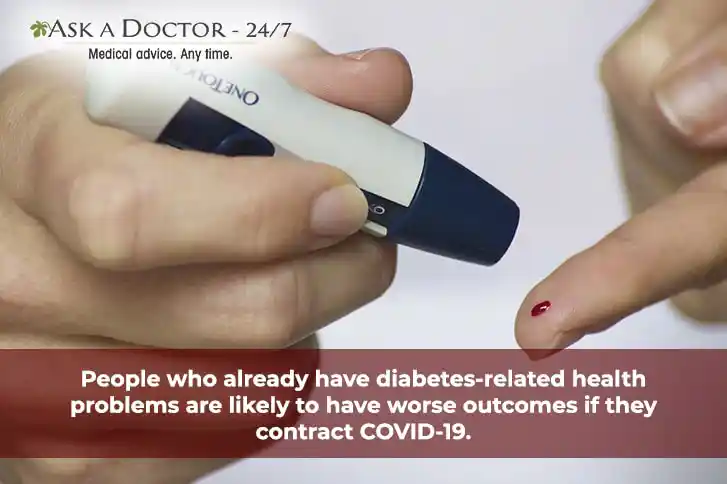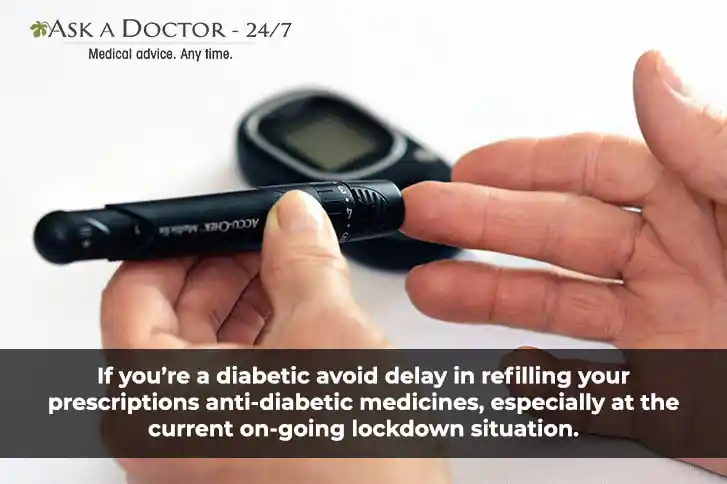COVID 19 And Diabetes: 5 Steps To Stay Safe!
The Novel Coronavirus (COVID-19) is a very contagious coronavirus with high fatality rates. People with suppressed immunity and other comorbid conditions like diabetes, high blood pressure, stroke, heart disease, lung disease, cancer, renal disease, etc., are particularly at risk of developing critical stage symptoms. If you are a person with diabetes, you are more at a risk of COVID 19 because of fluctuating blood sugar levels and associated complications. Here are 5 ways to keep oneselfone protected!
1. Restrict your movements

If you are person with diabetes, then you should ask volunteers to get groceries for you. They can leave your food and other supplies at your doorstep. However you do not need to self-isolate unless you have symptoms similar to coronavirus. Self-isolation is only needed with symptoms of coronavirus. Cocooning is needed if you are extremely vulnerable.
2. Restrict your travel
At this time there is a nationwide lockdown resulting in restriction of travel only within 2 km from place of residence. Public transport has been stopped. Only going out for essential work like buying food, medicines, banking or medical appointments is allowed. Therefore it is recommended to minimize travel and be safe.
3. Stay at home; stay safe
Only essential services including banks, hospitals, pharmacies, dairies, karyana shops, police stations are currently working at a different level to protect their workers and public from exposure to Coronavirus. These workers have been issued curfew passes and they have to produce it whenever stopped by police. Those who can work from home, must work from home only. Ask A Doctor if you should step out of the house or not.
4. Keep adequate medical supplies at home

In current date, some pharmacies are allowed to stay open 24/7 while most other pharmacies can stay open from 8 am to 5 pm. There is no big problem in getting your medicines at your local pharmacies. To avoid delay in refilling prescriptions, keep adequate supplies of your anti-diabetic and other medicines. Many volunteers are also working sincerely to keep the supplies updated for vulnerable population. Otherwise person in need can contact emergency services or police personnel to get their supplies.
5. Keep blood sugar under control
People with diabetes should have a glucometer at home to measure their blood sugar levels before and after eating. Type 1 diabetes people should also have ketone strips. Exercise regularly at home. Get some sunlight daily to keep vitamin D levels in normal range. Keep a thermometer and in case of fever more than 100.4 °F, please consult a diabetologist.
Alongwith general precautions for COVID-19, special precautions and preparations are needed for a person having diabetes. Contact your diabetologist in case you feel that blood sugar is not in control or you develop any other symptoms.
You can also consult an online Endocrinologist to know more about impact of COVID on diabetics.
Ask a Specialist
Recent Questions


